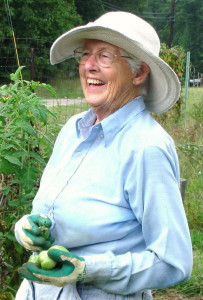
For years psychology looked at problems.
How to be happy, how we measure happiness, was not an obvious topic until Martin Seligman the researcher came along. Originally researching helplessness, he slowly realised that studying optimism was more beneficial than focusing on the negative emotions. He realised that the strengths of the client and the assumption that happiness is not the consequence of the right genes or luck, found through identification and use of the strengths of the client, such as kindness, originality, humour, optimism and generosity.
What shaped me as I grew up was humour. My parents were mad on the Goons and Monty Python, and I was almost expelled from school on a number of occasions for playing practical jokes, including dressing up in a cat outfit and peeping through the classroom windows, and in a musical “The Gondoliers” dressing up a sea gull with a hat and scarf. – What’s wrong with that? I therefore have always had a hard time with those who do not have a sense of humour.
Tapping into my clients funny bones I find essential as a therapist, allowing them to see the ridiculousness of a situation and sometimes roaring with laughter and even playing out comedy routines – like the lady with fear of flying. She didn’t like cartoons; she found nothing funny today. I asked her what in the past had made her laugh – Morecambe and Wise! So in the rewind, she visualised Morecambe and Wise as air stewardesses, and Des O’Connor as the pilot. She got into a fit of giggles but it worked. When she sat in that airplane, instead of nerves she just recalled the fits of giggles she’d experienced in therapy.
But it was purely by accident I hit upon an idea – I made a Smile board. Knowing that just smiling can boost serotonin, I pinned a postcard a friend gave to me of Frankie Howerd, then put other photos of friends, family and silly things that made me laugh on it, and placed it by the door. The one of me as a baby with my grandmother laughing never fails to make me smile – I grew up in a household filled with people and laughter. This smile board was the last thing I looked at as I left the house, and I always went out smiling.
I happened to mention it to a client, and she thought it such a good idea she made one too. This follows on from the idea of writing down 3 positive things at the end of the day, if we tell our clients to do this the likelihood of them doing it was slim, unless they kept a diary already, in which case suggesting to leave out the negative stuff is a good idea. Then another one of my clients made a “Happiness Jar”. She dressed it up, and each night wrote on pieces of coloured paper, 3 good things that happened that day, and at the end of the month she would tip it out and read through all the pieces of paper. She said it helped boost her mood and made her realise that good things were happening in her life.
A couple of years after attaining my HPD, I did a course in CBT. One of the exercises was keeping tabs on activities and moods. I found that for much of the time I was neutral, not happy or unhappy just unemotional. Slightly puzzled at this I asked Chris the tutor whether it was a good or bad thing, he smiled and said “What you’ve been experiencing is contentment”. When people are unhappy, they sometimes assume that what they want is happiness, when in fact it’s really contentment that is more desirable. A balance. It’s one reason mindfulness can be a positive activity to pursue, to be in the here and now, just content to be in the present.
If someone answers the miracle question with “I’d wake up feeling happy”, then it may also be prudent to ask what other positive emotions they might be feeling, and what would they be doing if they felt happier. If that happiness depends on other people, then getting the client to realise that they must take the responsibility of generating the feelings of contentment on their own is important. We know that those positive emotions rise from helping others, being altruistic and socialising with people that make them feel good. As Donald Sutherland’s character of Sergeant Oddball in Kelly’s Heroes often said “Stop hitting me wid dose negative vibes.”
So next time someone does hit you wid dose negative vibes think of something absurd, or Morecambe and Wise as air hostesses!
